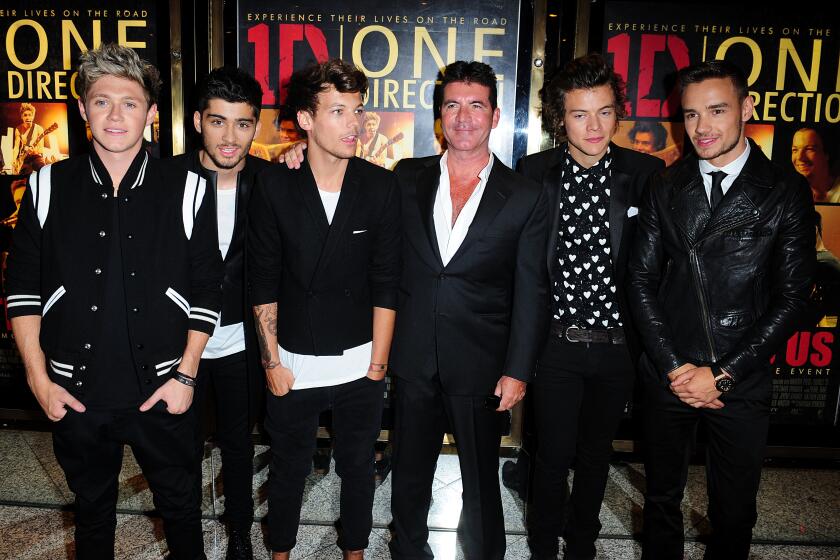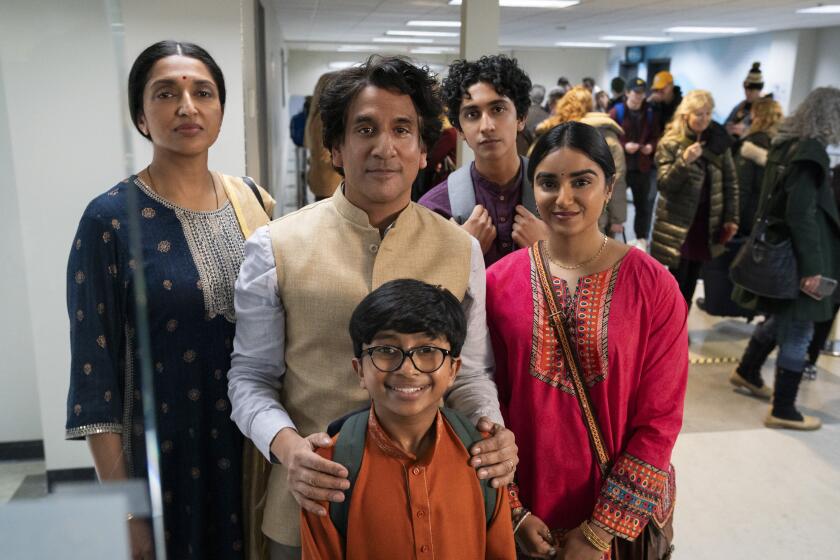TV Reviews : A&E; Documentary Sheds Light on Franco
Gen. Francisco Franco is still dead, but according to the BBC’s Jonathan Dimbleby, writer-host of “Franco: Behind the Myth” (at 9 tonight, Arts and Entertainment Channel), the legends surrounding the Spanish dictator are not.
Dimbleby, with producer Anthony Geffen (whose scathing “Ceaucescu: Behind the Myth” exposed another tyrant), finds historical facts that diminish Franco’s supremacist persona, although the investigative job here is nothing like the Ceaucescu project. While Franco’s rise to power and facist rule were largely public, Ceaucescu’s Romania was a super-secret enclave of infamy.
Indeed, it is precisely the public awareness of Franco’s atrocities--beginning with his military “cleansing” campaigns at the outset of the Spanish Civil War--that makes the West partly responsible for his 36-year repression. So it’s especially odd that Dimbleby and Geffen don’t further explore President Dwight D. Eisenhower’s 1959 pact with Franco, in which Spain gained needed cash reserves in exchange for U.S. military base placements on Spanish soil. In the name of anti-Communism, the former Allied leader of World War II was in bed with a man described as “the last facist” who nearly joined forces with Hitler and Mussolini.
By contrast, the film delves deeply into Franco’s frustrated attempts to deal with Hitler early in the war. In exchange for sending troops north to the war front, Franco hoped to gain former Spanish colonial lands in Africa. While rebuffing the myth that Franco stood tough in his meeting with Hitler, Dimbleby and Geffen never consider that Hitler wanted Africa for himself.
“Franco” explores many minor chapters in the dictator’s history--his political manipulation of his fellow generals, his re-staging of “heroic” events for the newsreel cameras, his bizarre obsession with Freemasonry--and by way of this uncovers the larger picture of a ruthless, cunning mind who kept his enemies in concentration camps during peacetime. But by not inquiring into how the Franco legend has precisely affected Spain and how the country has tried to put this period behind it, the film skirts a vital political context.
The complete guide to home viewing
Get Screen Gab for everything about the TV shows and streaming movies everyone’s talking about.
You may occasionally receive promotional content from the Los Angeles Times.



